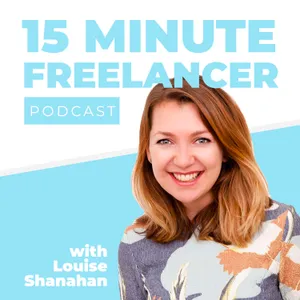Meet AJ Roberts...Fitpreneur, Marketing Icon, Iron-clad Teddy Bear
Download the transcript by clicking here
You're about to witness some real Marketing Muscle in today's episode with AJ Roberts. If it's true that "How you do one thing is how you do everything," then it's no surprise that the man who conquered the world of powerlifting has made such a big splash in the marketing world...
AJ Roberts is a fitness hall of famer with a world record squat and he's the bestselling co-author of the book Change Agents. He's a two time world record holder in powerlifting and rumor has it, he once made Chuck Norris do his dishes. (That's unsubstantiated, but since you're reading it on the internet, it must be true)
AJ is also the world's premiere fitness marketing consultant, pursued by gyms, supplement companies, trainers and anyone looking to take their revenue, business, and ultimately life to the highest levels.
He's also one the most sincere, genuine and gentle souls you could meet and has a gift for showing others how to dream bigger than they thought was possible while he helps them plan the steps necessary to achieve even the loftiest goals.
I invited AJ to the show so he can share with us his bacon wrapped strategies for getting guaranteed results, running a powerful referral system, and helping people get that mindset that anything is possible as long as you think huge.
Here’s what we discussed:
7:09 - AJ’s back story growing up in England and moving to America
9:54 - How to set higher goals
10:21 - Greaking the all time world powerflifting record
13:22 - Deciding to get his health back, losing weight and stepping on the bodybuilding stage
14:13 - The power of delayed gratification and how to master it
16:23 - How AJ chooses his coaches and his advice for you
23:48 - Building a vision around Growth, Experience, and Contribution
25:42 - Living in a limited reality: Why people can’t think beyond their current situation
27:41 - The importance of getting help from a mentor
33:35 - Running The Fitness Profit Workshop and mastermind groups
35:45 - People AJ is working with now
43:22 - Implementing perfect referral systems
48:54 - How to raise your fees and create the ripple effect
54:14 - Selling what you do vs. selling the results
59:34 - Outsourcing personal vs. business tasks, which should you delegate first?
62:43 - Decision fatigue and how to avoid it
Resources
AJRoberts.com
The Fitpreneurs Podcast
If you have any questions or challenges or would like a second opinion on your business strategy, email askbrad@baconwrappedbusiness.com and let me know.
Or simply register for my newsletter and reply to the email you get.





